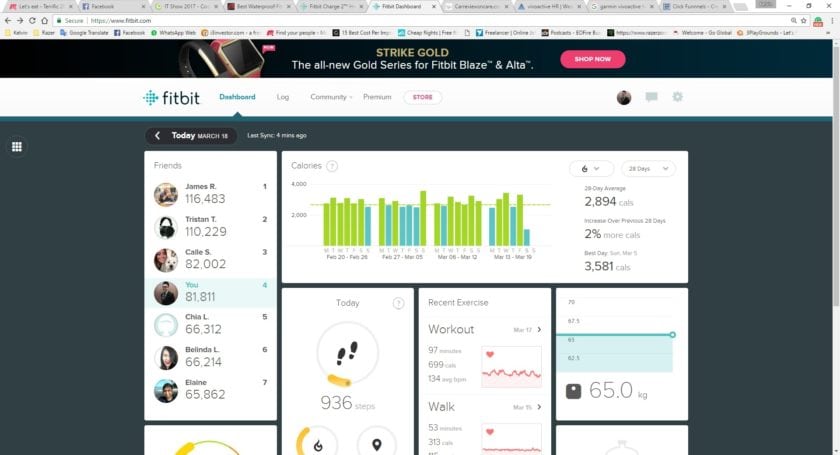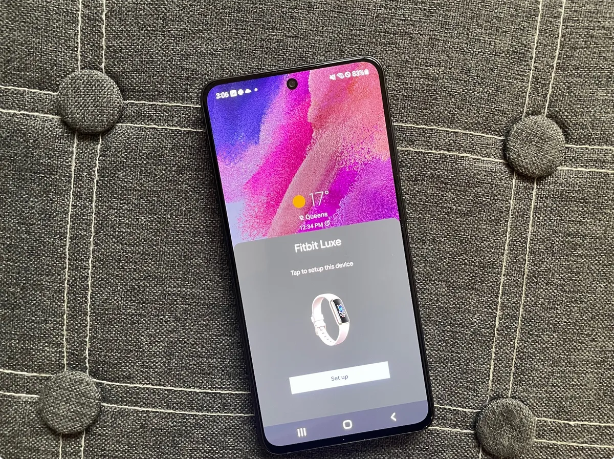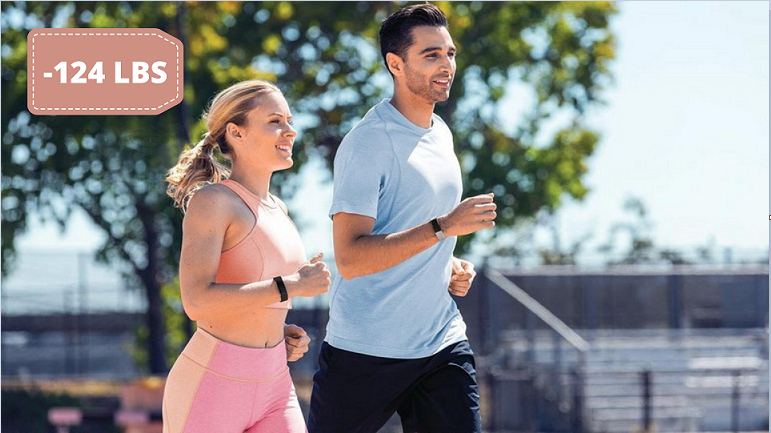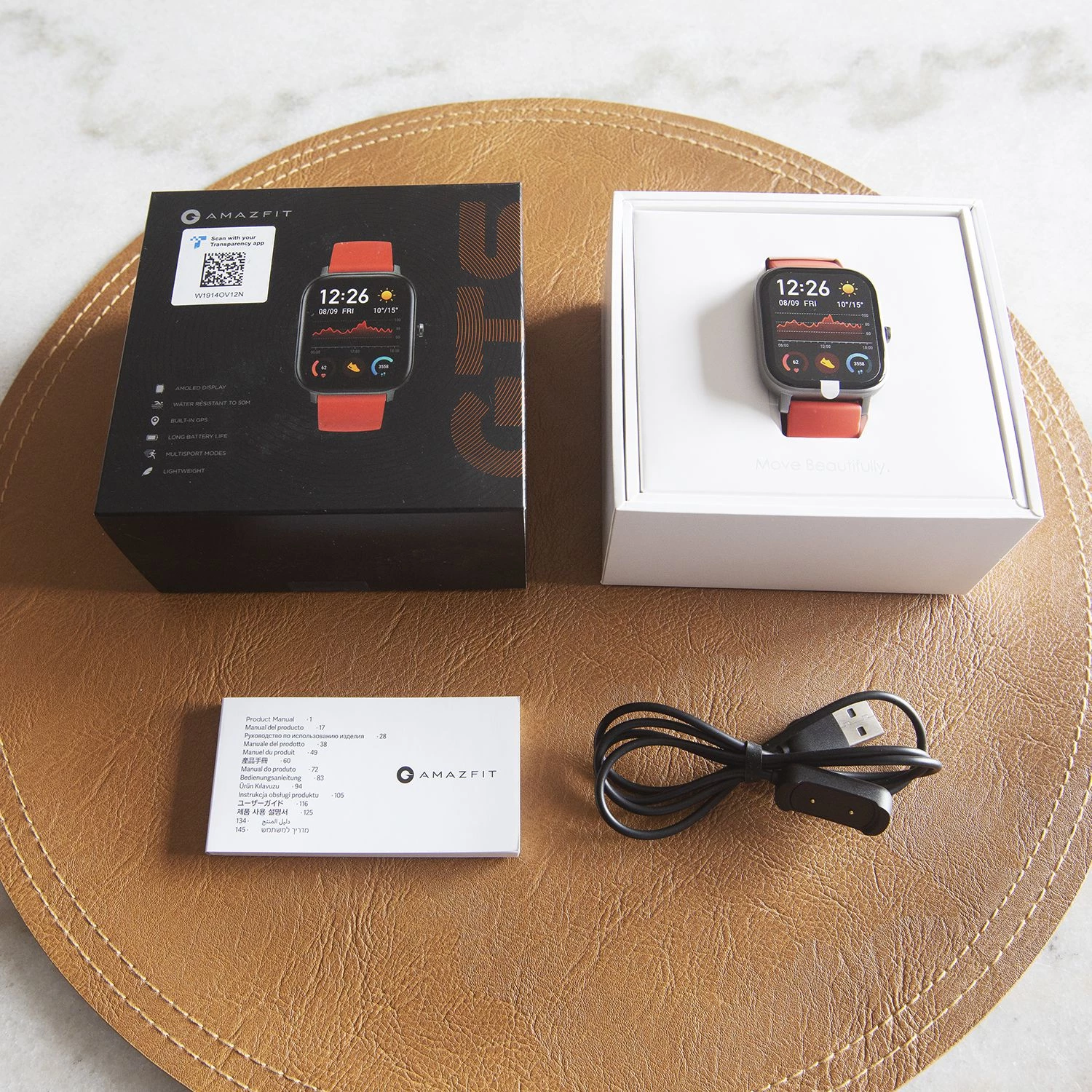The first time I realized my weight was a problem, when I was 8 years old. I overheard my doctor tell my mom that I was tipping the scale at over 100 pounds, and that she needed to start thinking of actions to take so that I didn’t gain any more weight.
The reason why it was so hard to control my eating habits is that food was always been such a big part of my life, and it was always so readily available. On top of that, I used food as an emotional outlet and source of comfort. I didn’t know any other way to cope with my emotions, good or bad, so I just ate my feelings.
But days before my 17th birthday that year, I had a life-changing religious encounter that helped me acquire the inner strength and fortitude I needed to make a lifestyle change.
The Fitbit is easy to use, and I wear it almost 24/7 to track my calories burn, steps, heart rate, and sleep pattern. We can even complete the count of steps with our friends. The heart tracking rate feature is what I like the most is that it tracked my heart almost in real time on my wrist (probably 3-5 seconds delay from my actual heart rate).
Check out below Fitbit Dashboard for the overall activities that I’ve done:

From the chart, my average calories burnt per day is 2894 cals, and best day is 3581 cals when I do vigorous activity more than 3 hours that day.
Pair your Fitbit with Android just by holding it near your phone

Fitbit and Google want to make setting up your new device almost effortless. Taking a page from Apple’s book, Google’s Fast Pair feature speeds up the pairing process by connecting your new Fitbit to your Android phone when the two devices are near one another. You just need to turn on your Fitbit device and make sure your phone’s Bluetooth is enabled to get started, and then you should see a prompt to download Fitbit’s app. It works on models such as the Luxe, Charge 5 and Inspire 2.
10,000 steps
I got my first warning that Fitbit wouldn’t work for me on my second day wearing it, though I didn’t realise it at the time. I was walking along when suddenly my wrist began to vibrate violently. I looked down to see the band flashing “10,000″ in bright white numbers as diagonal stripes crisscrossed across the rectangular screen.
The flashing lights meant I’d reached the daily 10,000-step goal, a benchmark the American Heart Association has agreed on for improving health and reducing heart disease risk. The tiny party on my wrist made me feel pretty accomplished.
But as I kept walking, I found myself glancing down at my wrist every few minutes.
I watched as the screen ticked off each step: left, right, left, 10,001, 10,002, 10,003.
Next, I pulled my phone out of my pocket to check the Fitbit app’s dashboard. There I could see my other friends’ statistics lined up against mine.
Tracking my exercise and food
I was feeling defeated, and my mind began to wander to ways I could match my friends.
“What about that yoga class I did yesterday?” I thought to myself. “Shouldn’t that count?”
Lucky for me, Fitbit is way head of me on this one.
While its most popular wrist tracker (the “Charge”) doesn’t tally all your activity — the company now offers several cardio versions of the device, including the “Charge HR,” which can give you a guesstimate of your physical activity based on heart-rate measurements — you can add your own activities manually by tapping “track exercise” on the app’s dashboard.
It also offers a variety of other versions, from the ultra-slim Alta wristband to the Surge, which includes a GPS, heart-rate monitor, and all-day activity tracker.
After I’d typed in my sweaty hour-long yoga class, the app told me I’d burned 238 calories. Sounded pretty measly to me. Thankfully, it may be an underestimate: several studies have found that Fitbit tends to underestimate calorie burning for certain activities while overestimating it for others.
I have lost 124 LBS and I am still going
I wish I had known that weight loss is more of a mental battle than it is a physical one. In theory, losing weight is simple. However, the real test is seeing if you can overcome the mental strongholds and bad habits that led you to be overweight in the first place. A poor mentality can definitely overpower your desire to change if you let it.
Choosing the best Fitbit for you all depends upon your needs and budget. Fitbit’s devices are some of the best fitness trackers you can buy, but range from the $70 Fitbit Inspire to the $329 Fitbit Sense, so it’s important to know what you’re looking for.




